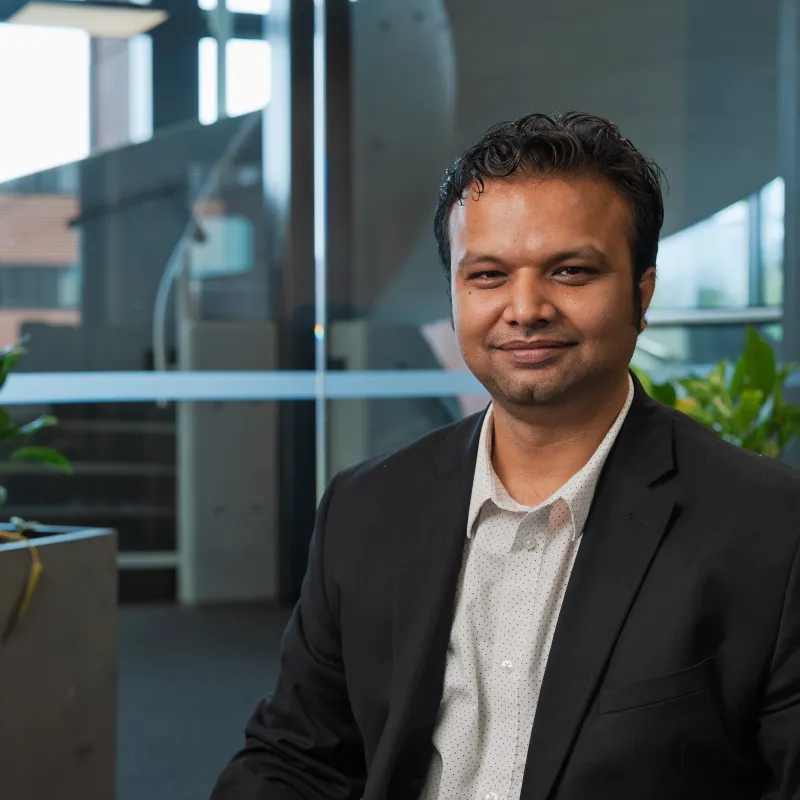Prabhat Kumar

Biography
Prabhat Kumar: received his Ph.D. degree in Information Technology from the National Institute of Technology Raipur, Raipur, India, in 2022, under the prestigious Ministry of Human Resource Development (MHRD) fellowship funded by the Government of India.
He is currently working as an Assistant Professor (Tenure Track – Level 2) in the Department of Software Engineering at LUT University, Lappeenranta, Finland. He also serves as the Head of the Responsible Information Systems Development Master’s Programme and holds the title of Docent in Artificial Intelligence for Cybersecurity. Prior to this, he was a Postdoctoral Researcher at LUT University from 2022 to 2025.
His research adopts a multidisciplinary perspective, integrating concepts from the Internet of Things (IoT), network and software security, data analytics, and natural language processing (NLP) to address emerging cybersecurity challenges. His expertise can be broadly categorized into the following two areas:
- IoT and Network Security: He has conducted extensive research on addressing security challenges related to IoT and smart network environments, utilizing AI and Blockchain techniques to enhance system robustness and resilience. This aspect of his research integrates IoT and network security within the AI for Cybersecurity framework. His work has appeared in various prestigious outlets, including IEEE Network Magazine, IEEE Communications Magazine, IEEE Transactions on Industrial Informatics, IEEE Internet of Things Journal, IEEE Transactions on Network Science and Engineering, IEEE Transactions on Vehicular Technology, IEEE Transactions on Intelligent Transportation Systems, IEEE Transactions on Consumer Electronics, ACM TOIT, Computer Networks, Journal of Parallel and Distributed Computing, IEEE ICC, ACM MobiCom, and IEEE GLOBECOM.
- Predictive Analytics, and Software Security: In parallel, he has worked on predictive analytics and NLP, applying these techniques to cybersecurity, including software security. His work in this area has been published in major business and software-discipline journals and conferences. His research findings have been published in highly regarded outlets such as Decision Support Systems, Computers & Security, Software: Practice and Experience, ICIS, HICSS, and INFORMS WITS Workshop.
Furthermore, he has worked extensively on research projects involving deep learning, explainable AI, distributed and decentralized systems, and their applications in enhancing security systems for IoT environments and critical infrastructures. He has received two major research grants (as CO-PI) from CHIST-ERA / Academy of Finland—1.3 million Euros (Di4SPDS- https://di4spds.eu/) and 1.2 million Euros (Ai4MULTIGIS- https://www.ai4multigis.eu/)—supporting his work in developing innovative AI-driven solutions that address critical cybersecurity challenges, leveraging advanced methods and algorithms for threat detection, risk assessment, and system resilience. He also received a prestigious personal award of €5,000 from the Research Foundation of LUT University (Lauri ja Lahja Hotinen) in 2023, recognizing him as one of the top-performing postdoctoral researchers (research contribution) at LUT University.
As a Research Assistant and Lab Instructor at the National Institute of Technology (NIT) Raipur, he contributed to the Artificial Intelligence and Data Analytics course. He designed and supervised hands-on lab sessions using TensorFlow and PyTorch, guiding students in building neural networks, exploring optimization techniques, and developing real-world AI applications. His mentorship in team-based projects encouraged students to apply federated and reinforcement learning in domains such as cybersecurity and healthcare.
At LUT University, Finland, he currently teaches Advanced Networks, and Foundations of Cybersecurity. His teaching integrates blended and experiential learning methods using Moodle, Wireshark, and case-based activities inspired by the Harvard Business School model. The Foundations of Cybersecurity course, which he independently designed, fosters analytical reasoning through real-world problem solving and team discussions.
He also established ChainLab, an experiential learning hub that connects teaching and research through hands-on exposure to IoT, blockchain, and edge-AI technologies. This initiative reflects his commitment to linking theory with practice and nurturing students’ professional readiness. Across all contexts, his pedagogy emphasizes inclusivity, collaboration, ethical responsibility, and the cultivation of critical thinking and lifelong learning skills.

